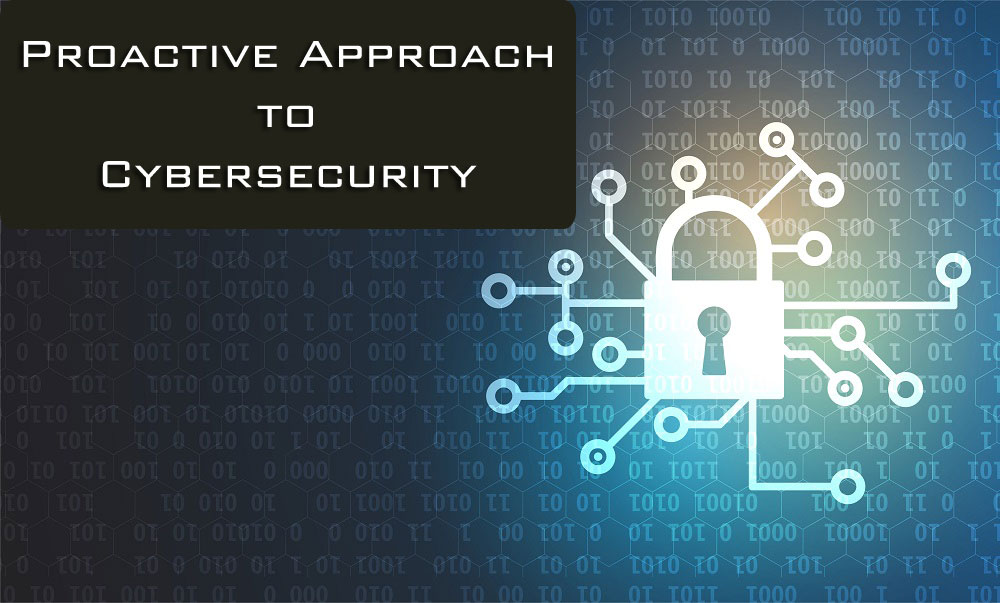There are many areas of our world where proactivity pays some real dividends, and one that should not be ignored here for many businesses and entities is cybersecurity. Taking a proactive, aggressive approach to preventing threats is the ideal way to go about protecting your business and its data, and there are several reasons for this.
At Elevated Networks, cybersecurity is just one of numerous IT and telecom solutions we offer to clients around Salt Lake City, St. George and other parts of Utah. Here are some basics on what we mean by proactive cybersecurity and the kinds of approaches that are part of it, plus why it’s so beneficial to many companies as they look to protect themselves from various threats out there.
What is Proactive Cybersecurity?
Generally speaking, there are two approaches to cybersecurity: reactive and proactive. Reactive cybersecurity focuses on reacting to threats as they arise, while proactive cybersecurity involves taking steps ahead of time to prevent potential breaches or intrusions.
With proactive cybersecurity, you’ll be taking steps to protect your networks, systems and data before any attack occurs. This can involve a variety of specific needs, all of which are designed to detect and respond quickly if any potential security event occurs.
Examples of Tactics Used in Proactive Cybersecurity
While this is far from an exhaustive list, here are some of the kinds of tactics often found in a proactive cybersecurity setup:
- Penetration testing: This is where a third-party security expert or team simulates a cyberattack on your systems to see how they’d respond and what vulnerabilities exist. It allows you to develop a plan of attack and identify any potential weak spots before they are exploited.
- Network segmentation: This is where your network architecture is broken down into smaller parts, making it harder for attackers to access the entire system if something does penetrate one part of the network.
- Multi-factor authentication: A combination of passwords, biometrics or other authentication methods can help you ensure that the right people are accessing your systems at all times, and can limit access to those who don’t have legitimate credentials.
- Threat hunting: This is where a team of security professionals actively looks for any signs of malicious activity, using advanced tools and techniques to detect and respond quickly.
- Network and endpoint monitoring: This can involve everything from the use of antivirus and malware protection to keep an eye on any suspicious activity, as well as monitoring network traffic for anything out of the ordinary.
- Employee training: Another key part of proactive cybersecurity is educating your employees on how to spot potential threats and best practices for keeping their data safe.
Key Benefits of Adopting Proactive Cybersecurity
There are several major reasons why a proactive approach to cybersecurity is so valuable for many companies, including all of the following:
- Prevents threats before they happen: One of the simplest but most notable advantages of proactive cybersecurity is that it helps you prevent a security incident from even happening in the first place. Rather than being forced to react and clean up after the fact, you can take steps ahead of time to stop an attack before it happens.
- Saves money in the long run: Even if proactive cybersecurity costs more up front than a reactive approach, it pays off dividends in the end by reducing your overall security expenses in the long run. As any major breach can cost hundreds of thousands or even millions of dollars, proactive security can help you save money in the end.
- Maintains compliance: For those that need to adhere to various industry-specific regulations or standards, proactive cybersecurity can help them maintain their compliance with the necessary rules and requirements.
- Ensures better data protection: In the end, the main goal of any security setup should be to protect your data from malicious attackers. Proactive cybersecurity allows you to do this more effectively by taking steps to prevent attacks before they occur.
- Boosting consumer trust: More and more in recent years, consumers have been increasingly aware of the need for good cybersecurity. By showing your customers that you take their security seriously, you can build trust and loyalty with them that will pay off in the long run.
- Simplifies reactive security needs: Finally, in the rare cases where you are forced to react to an immediate threat, having a proactive security setup in place can make it much simpler to respond quickly and effectively. Rather than having to start from scratch, you can rely on the existing measures you put in place to help you deal with any potential issues.
Overall, taking a proactive approach to cybersecurity is one of the best ways for businesses of all sizes to protect their data and maintain long-term security. With the right measures in place, you can identify potential threats before they become an issue and save both time and money in the process. By keeping your systems secure, you can ensure that your business continues to operate smoothly and remains compliant with any applicable regulations.
For more here, or to learn about any of our IT and telecom services across SLC, St. George or other parts of Utah, speak to our team at Elevated Networks today.
